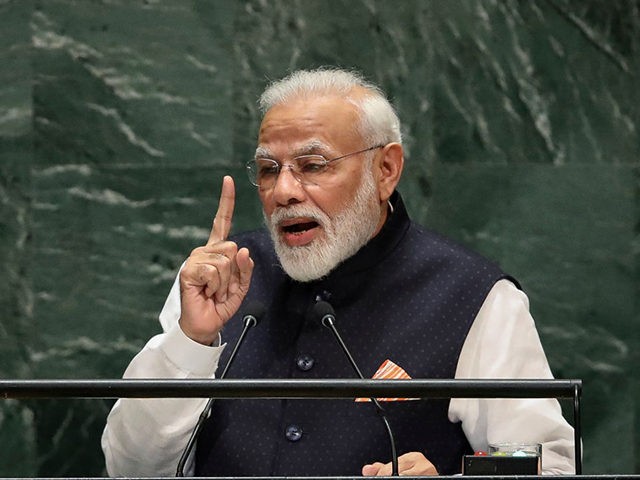India is the only G20 nation doing its “fair share” to meet the climate change mitigation commitments it agreed to under the 2015 Paris Climate Accord, a 2020 Climate Transparency report published on Wednesday revealed.
Climate Transparency is an international group of 14 research and non-governmental organizations that examines global climate action. In its report, the group examined the efforts taken by G20 nations to tackle climate change since the 2015 Paris Agreement.
The organization assigned participating nations a score based on a Climate Action Tracker (CAT), which “quantifies and evaluates climate change mitigation commitments and assess[es] whether a government is doing its ‘fair share’ compared with others towards the global effort to limit warming consistent with the Paris Agreement,” according to the report.
The CAT assessment asserts that India is the only G20 nation doing its “fair share” toward fulfilling the accord’s stated effort to limit global warming to 2 degrees Celsius by the end of the century.
Under the Paris Agreement, India pledged to reduce its greenhouse gas emissions intensity 33-35 percent by 2030. Since 2015, the country has made significant strides toward achieving the goal through changes in its energy, transport, industry, forestry, and waste sectors, the report said.
However, India is currently “not on track” to reach the Paris Agreement’s longer-term goal to limit global warming by 1.5ºC, it added.
“In fact, no country has 1.5-degree Celsius-aligned renewable energy targets,” the Times of India pointed out on Thursday, noting that despite this, India’s renewable energy targets have become “an example” for other nations.
“India is the only G20 country which is on a track consistent to move the world to a 2-degree Celsius warming future,” Ajay Mathur, director of The Energy and Resources Institute (TERI), an independent thinktank, told the newspaper.
India is able to “move the needle of its carbon emissions trajectory through the largescale adoption of renewable electricity,” Mathur said.
“This experience of enabling growth in the power, transport and industry sectors to be based on zero-carbon-emissions technologies would have huge replicative value in other G20 countries,” he added.
According to Climate Transparency’s report, China’s greenhouse gas emissions continue to chart above the G20 average. The group expects China’s emission levels to peak by 2030. The report called for Beijing to withdraw coal pipeline projects both domestically and abroad to reduce greenhouse gas emissions and mitigate air quality issues.
The report added that lockdowns caused by the ongoing Chinese coronavirus pandemic led to reduced greenhouse gas emissions overall in the first half of 2020, with China as the exception.
“[D]ramatic CO2 emissions reductions were recorded in China in the first quarter of 2020, but the country was already approaching business-as-usual by the middle of March and surged past 2019 levels in May 2020,” Climate Transparency noted.
“In contrast, the USA, India, the EU, and the rest of the world witnessed their biggest reductions, thus far, in the second quarter of 2020,” the report added.

COMMENTS
Please let us know if you're having issues with commenting.